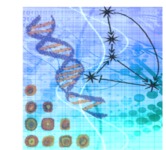 | SysBioCancer2019: 2nd International Multidisciplinary Course on Computational Systems Biology of Cancer: Single Cell Analysis |
| Website | https://training.institut-curie.org/courses/sysbiocancer2019 |
| Poster | download |
| Abstract registration deadline | July 4, 2019 |
| Submission deadline | July 4, 2019 |
| Acceptance notification | July 5, 2019 |
| Course dates | September 23-28, 2019 |
| Course venue | Institut Curie, Paris, FRANCE |
Application Guidelines
Application deadline: July 4, 2019 Acceptance notification: July 5, 2019 Course dates: September 23-28, 2019
-
CV (max. 1 page)
-
Description of scientific topic in a form of abstract (max. 1 page)
-
Motivation letter explaining objectives to attend the course (max. 1 page)
-
Recommendation letter from 1-2 reference persons
Further details and program: https://training.institut-curie.org/courses/sysbiocancer2019
Audience and selection criteria
No previous experience in programming and modelling methods or deep knowledge in systems biology is required. The talks will be constructed in a didactic manner, introducing the audience to the basics on systems biology approaches and applications for cancer research. Selections for participation in the course are based on applications.
In addition to attendance of the lectures, the participants of the course are expected to take part in the following events: (1) Presentation of their own scientific project with a flash presentation and a poster (for PhD Students and Post-docs). (2) Participation in the Journal Club to present and discuss milestone papers in the cancer systems biology field. Scientific papers within the main topics covered by the course will be sent to the accepted applicants for presentations during the journal club (for Master students). (3) Participation in the Career development workshop during the Saturday morning session (all participants).
Course objective
Systems biology approaches help to analyse molecular mechanisms in silico. The diversity across tumors from different patients and even across cancer cells from the same patient makes the picture very complex, making the fundamental aim to find a common mechanism for therapeutic targeting of cancer becomes unpractical.
Therefore, the idea of ‘personalized’ or ‘precision’ medicine has been suggested, aiming to find tailored treatment regimen for each patient according to the individual genetic background and tumor molecular profile. This attempt, although ambitious, is achievable thanks to sufficient molecular characterization of cancers accumulated using high-throughput technologies. However, despite availability of cancer high-throughput (omics) data, they are not fully exploited to provide the clue on deregulated mechanisms that would guide better patients stratification and to specific treatment in cancer.
The objective of the course is to promote better integration of computational approaches into biological and clinical labs. We aim to help participants to improve interpretation and use of omics data that nowadays are accumulated in any biological or medical lab. This year, the course will particularly focus on SysBio approaches for single cell data analyses. We will review current methods and tools for the analysis and interpretation of single cell data, along with concrete applications related to cancer. In particular, we will emphasize the role of single cell data research for understanding the heterogeneity of tumor and its microenvironment.
We invited leading speakers from different fields in cancer systems biology, especially from the field of system biology of single cell data in cancer. The invited speakers will expose various approaches for single cell data analysis and interpretation using cell type-specific pathways resources; tools to study molecular mechanisms of cancer using signalling networks together with omics data from single cells and to associating it to clinical data. In addition, drug sensitivity prediction algorithms, biomarkers and cancer drivers identification; patient stratification approaches; application of mathematical modelling, machine learning and image analysis in cancer approaches with focus on single cell data will be demonstrated.
Topics
Deciphering and modelling of biological networks involved in cancer
- Comprehensive signalling/metabolic networks and pathway databases in cancer
- Cell type-specific pathways resources
- Single cell omics data visualisation, analysis and interpretation
- Network inference from big data
- Mathematical modelling of cancer molecular mechanisms
Big data: single cell and clinical data analysis
- Inferring and analysing tumour heterogeneity from single cell data
- Prediction of response to treatment
- Single cell data for more precise patients’ stratification
- Bioimage informatics as high‐content screening in single cell research
- Spatial transcriptomics in organs
Career development workshop (half a day on Saturday)
- Introduction to career development opportunities in computational systems biology of cancer
- Presentation of career paths and assistance of students in round table discussion with Invited speakers, Pharma representatives, Scientific editing bodies
Speakers
Keynote speakers
- Peter Kharchenko (Harvard Medical School, Boston, USA)
- Nikolaus Rajewsky (MDC, Berlin, Germany)
Speakers
- Augustin Luna (Harvard Medical School, Boston, USA)
- Reinhard Schneider (Luxembourg University, Luxembourg)
- Heather Marlow (Institut Pasteur, Paris, France)
- Luca Pinello (Harvard Medical School, Boston, USA)
- Denis Thieffry (IBENS-ENS, Paris, France)
- Julio Saez-Rodriguez (EMBL-EBI, Hinxton, UK)
- Vassili Soumelis (INSERM, Paris, France)
- Andrei Zinovyev (Institut Curie, Paris, France)
- Jérome Galon (Cordeliers Research Center, Paris, France)
- Estelle Duprez (CRCM, Marseille, France)
- Lodewyk Wessels (National Cancer Institute, Amsterdam, The Netherlands)
- Kathleen Marchal (Ghent University, Ghent, Belgium)
- Ioannis Xenarios (UNIL, Lausanne, Switzerland)
- Thomas Walter (Centre for Computational Biology, MINES ParisTech, Paris, France)
- Antoine De Weck (Novartis, Basel, Switzerland)
- Andrew Teschendorff (University College London - London, UK)
- Thomas Höfer (Deutsches Krebsforschungszentrum - Heidelberg, Germany)
Committees
Organizing Committee
- Emmanuel Barillot (Institut Curie - INSERM U900)
- Inna Kuperstein (Institut Curie - INSERM U900)
- Vassili Soumellis (INSERM U932)
- Denis Thieffry (Institut de Biologie de l'École Normale Supérieure)
- Thomas Walter (Centre for Computational Biology, MINES ParisTech)
Scientific committee
- Laurence Calzone (Institut Curie - INSERM U900)
- Tatiana Popova (Institut Curie - INSERM U830)
- Andrei Zinovyev (Institut Curie - INSERM U900)
Contact
All questions about submissions should be emailed to c.sysbiocancer2019@curie.fr
